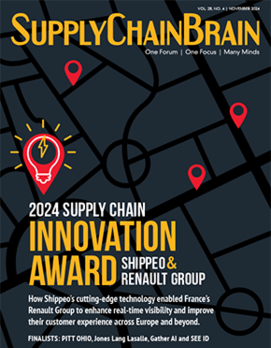
As sensitivity and awareness of human rights and environment-related topics grow, so does the volume of correspondent legal frameworks.
Following initiatives such as the 1.5-degree Celsius goal for limiting global warming, established by the Paris Agreement, the European Union has passed legislation to further those goals — the Corporate Sustainability Due Diligence Directive (CS3D). Proposed on February 23, 2022, and having faced numerous concerns and criticism from both politicians and companies, the directive was adopted with significant changes by the European Parliament on April 24, 2024, and went into effect on July 25. EU member states are now obligated to implement CS3D into national laws by July 26, 2026.
CS3D seeks to address issues of ever-more complex supply chains throughout international business networks, such as the adverse effects of commercial operations on environmental protection, and lack of safeguarding of human rights standards. Specifically, the directive is intended to establish a uniform legal regime in combatting human rights violations such as child labor, forced labor, discrimination and exploitation, as well as climate change and environmental destruction.
Obligations Under CS3D
CS3D imposes a duty on companies to establish a strategy to transition to a sustainable economy, limit global warming per the Paris Agreement, and achieve climate neutrality.
In terms of due diligence, companies are required to identify, prevent, end or mitigate adverse environmental and human rights impacts from their operations or those of their subsidiaries and in their chain of activities. These obligations encompass:
- Integration of due diligence into companies' policies and management systems;
- Identification and addressing of adverse human rights and environmental impacts;
- Prevention, cessation or minimization of actual and potential adverse human rights impacts;
- Monitoring and assessment of the effectiveness of the measures taken;
- Corresponding communication, and
- The provision of remediation in case of breaches.
Starting after a five-year transition period from adoption, CS3D will be applicable to companies with a minimum workforce of 1,000 employees and an annual net revenue surpassing €450 million (US$498 million). Within the transition period, minimum employee requirements will gradually be lowered, resulting in a step-by-step broadening of the regulation's scope. As of January 1, 2029, the CS3D will also apply to companies that operate a franchise or licensing model within the EU that surpass an annual revenue of €80 million (US$87 million), €22.5 million (US$24.4 million) of which need to be royalties.
For non-EU companies, no minimum employee requirements are applicable. Instead, the annual net EU revenue constitutes the only criterion for being subject to the CS3D. Apart from entities covered under the above-mentioned requirements, the directive will apply to direct suppliers, as well as both direct and indirect upstream and certain downstream commercial partners, provided that the latter carry out the concerned activities for or on behalf of the regulated entity.
The German Supply Chain Act
Prior to the adoption of CS3D, several nations had already implemented equivalent regulations. In Germany, they took the form of the Lieferkettensorgfaltspflichtengesetz (LkSG), or German Supply Chain Act. Member state statutes will need to be amended to comply with the CS3D, which enjoys precedence in application over national legislation. As an example, the LkSG limits sanctions to financial penalties of up to 2% of a company's annual revenue, while the CS3D establishes companies' civil liability for damages resulting from noncompliance, in addition to fines of up to 5% of annual revenue.
Similar to prior EU initiatives, the German government is currently assessing how to adapt existing laws and regulation in the face of the superseding CS3D. One idea under consideration is suspending the LkSG until adoption of CS3D in Germany.
For companies in Germany, the structure of the LkSG and CS3D poses uncertainty. Since CS3D imposes stricter standards in certain elements, German companies subject to CS3D will likely need to implement compliance processes with the EU directive while monitoring processes with the LkSG.
Criticism and Concerns
While CS3D is an important step toward the intended goals, the new legislation does not come without pushback. Critics on both the political and economic sides have voiced concerns including high administrative expenses for affected companies in taking the measures necessary to comply with CS3D's obligations. When asked about CS3D, the chief executive officer of a German precision bearings supplier commented, "It constitutes a significant legal and economic challenge. In order to safeguard the interests of the company as much as possible, it is our policy to obtain evidence from all factories and distributors in the supply chain. Nevertheless, concerns persist regarding the legal certainty of these practices, particularly in instances where products are procured in China. Despite the receipt of a confirmation of conformity, it remains challenging to ascertain its veracity." The CEO added that CS3D will likely have a negative impact on consumers, as price increases for compliance will ultimately be passed down, while EU businesses may face disadvantages in global competition due to an absence of similar compliance obligations in other jurisdictions.
Critics are also concerned that the legislation may weaken developmentally valuable effects of international supply chains and potentially harm the European economy, due to the threatened resignation from the regulated market by companies from developing and emerging markets that lack the economic or organizational means to comply with CS3D. Skeptical voices further claim that assumptions about the degree of control that companies have over their supply chains are not realistic, and will lead to an overburdening of those companies, especially small and midsize ones.
Given the numerous concerns from the business community, CS3D poses a risk to investment from both domestic and foreign companies. Due to the increased administrative cost of compliance, foreign companies may look to shift investment to markets outside the EU.
Next Steps for Companies
Moving forward, in order to avoid unforeseen economic effects and financial burdens, companies are advised to assess whether they are subject to CS3D. Notwithstanding the provisions of the LkSG, it is important for German companies to comply with the stricter requirements of CS3D, since EU legislation supersedes national legislation.
Companies will face a number of challenges in complying with CS3D. They’ll need to ensure transparency and cooperation with business partners across the supply chain, which may pose obstacles related to differences in culture, language, communication and business practices. The need for significant and recurring adjustments, along with potentially high expenses for adequate software and IT resources, should be expected. On suppliers’ part, implementation and compliance will necessitate training, including workshops conducted by competent personnel. In the event that a business can’t ensure a partner's compliance, companies may even be forced to end such relationships in order to avoid liability or risk-enforcement actions from the EU.
To prepare for implementation of CS3D, companies should assess existing supply chains as well as compliance processes. Based on this review, they’ll need to determine measures for enhancing visibility and ensuring compliance throughout the supply chain. Such efforts may require the updating of contracts and conducting of regular audits. Moreover, companies should familiarize themselves with potential support opportunities from the EU. Based on current guidance, the EU plans to issue guidance on fitness criteria for industry schemes, multi-stakeholder initiatives and third-party verifiers. Lastly, companies should engage with export guidance, such as tax, consulting and legal services, to verify the effectiveness of compliance measures and guidance on potential alternative measures.
In sum, due to the comprehensiveness of CS3D, companies need to take comprehensive measure to ensure compliance, and limit the risk of potential fines and other corrective measures from the EU.
Felix Faerber is a shareholder in the Atlanta office of Baker Donelson.







